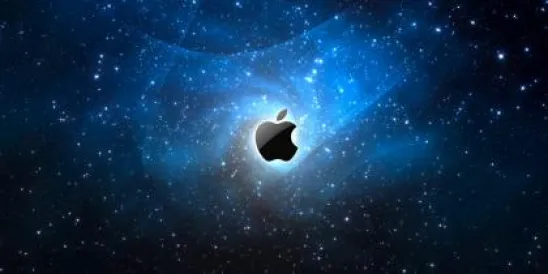On August 3, 2013, U.S. Trade Representative Michael Froman, acting under the authority of President Obama, sent a letter noting his disapproval of the International Trade Commission’s determination to issue an exclusion order in connection with the investigation prompted by Samsung against Apple’s iPhone, effectively ending the investigation.
For the first time since the administration of President Ronald Reagan, an exclusion order issued by the U.S. International Trade Commission (ITC) has been disapproved by the president on policy grounds. On August 3, 2013, U.S. Trade Representative (USTR) Michael Froman, acting under the authority of President Obama, sent a letter to the ITC noting his disapproval of the ITC’s determination to issue an exclusion order in Certain Electronic Devices, Including Wireless Communication Devices, Portable Music and Data Processing Devices, and Table Computers, Investigation No. 337-TA-794. The letter explained that the USTR’s disapproval was based on various policy considerations, and particularly emphasized the harms associated with “patent hold-up” that are caused when exclusionary relief is sought for standards essential patents (SEPs) that are subject to voluntary commitments to be licensed on fair, reasonable and non-discriminatory (FRAND) terms.
In the 794 investigation, the complainant Samsung Electronics asserted it had two patents previously declared to be “standards-essential” to the Universal Mobile Telecommunications System promulgated by the European Telecommunications Standards Institute (ETSI). ETSI’s Intellectual Property Rights policy required Samsung to offer licenses to such patents on FRAND terms. After licensing negotiations between Samsung and the respondent, Apple, broke down, Samsung filed a complaint at the ITC requesting a limited exclusion order against Apple’s mobile communication products. In its final determination, the ITC found one of the two patents asserted by Samsung to be both valid and infringed, and that the proper relief was a limited exclusion and cease-and-desist order directed to Apple’s infringing products.
The ITC rejected Apple’s theory that the ITC “cannot address infringement of standard-essential patents other than in the exceptional scenarios such as where a potential licensee has refused to pay a royalty after a U.S. court has determined that royalty to be FRAND, or where no U.S. court has jurisdiction over the potential licensee in order to set a FRAND rate,” ruling that the remedies provided under §337 could be imposed in addition to any damages or injunctions available from a district court. The ITC also rejected the position that whether a patent has been declared standard-essential should be considered as part of the public interest analysis.
In accordance with 19 U.S.C. §1337(j), the president has the authority to disapprove “for policy reasons” any ITC determination finding a violation of Section 337. The president may disapprove an ITC order on policy grounds, approve an order, or take no action and allow the order to come into force upon the expiration of a 60-day review period following the issuance of the order by the ITC. Through an executive order in 2005, President Bush delegated this authority to the USTR.
The August 3 letter noted that the USTR took into account the following considerations as being relevant to the policy review of the impact of the ITC’s determination to issue an exclusion order: “(1) public health and welfare; (2) competitive conditions in the U.S. economy; (3) production of competitive articles in the United States; (4) U.S. consumers; and (5) U.S. foreign relations, economic and political.” In analyzing these considerations, the USTR relied heavily upon the “Policy Statement on Remedies for Standard-Essential Patents Subject to Voluntary RAND Commitments” (Policy Statement) issued jointly by the U.S. Department of Justice (DOJ) and the U.S. Patent and Trademark Office (PTO) on January 8, 2013. As noted in the DOJ/PTO Policy Statement, the Obama administration expressed “substantial concerns” about the undue leverage that results when the holder of an SEP seeks to exclude an implementer of a technology standard from a market in order to leverage a higher price for use of the patent than would have been possible before the standard was set, i.e., when alternative technologies could have been chosen.
The USTR further noted that “exclusionary relief from the Commission based on FRAND-encumbered SEPs should be available based only on the relevant factors described in the Policy Statement.” As explained by the USTR, “an exclusion order may still be an appropriate remedy in some circumstances, such as where the putative licensee is unable or refuses to take a FRAND license and is acting outside the scope of the patent holder’s commitment to license on FRAND terms.” The Policy Statement noted, as examples, the situation where “a putative licensee refuses to pay what has been determined to be a FRAND royalty, or refuses to engage in a negotiation to determine F/RAND terms,” which may also include a “constructive refusal to negotiate, such as by insisting on terms clearly outside the bounds of what could reasonably be considered to be F/RAND terms in an attempt to evade the putative licensee’s obligation to fairly compensate the patent holder.” Additionally, the Policy Statement noted that “[a]n exclusion order also could be appropriate if a putative licensee is not subject to the jurisdiction of a court that could award damages.”




 />i
/>i

